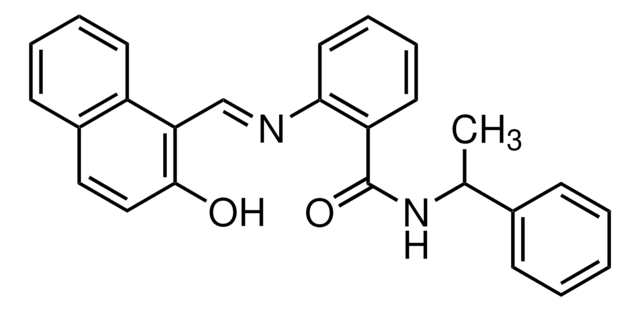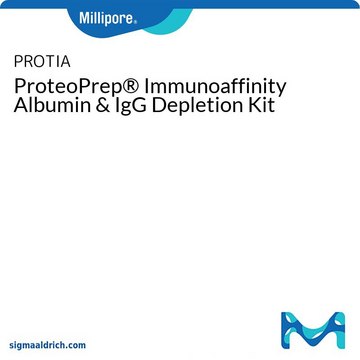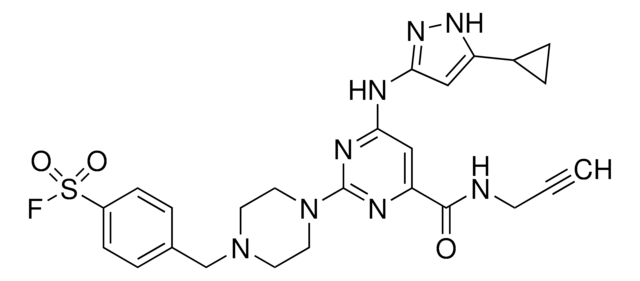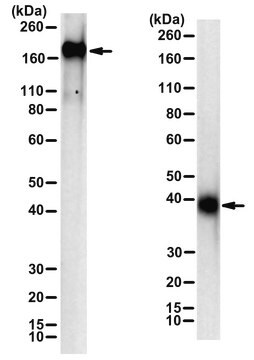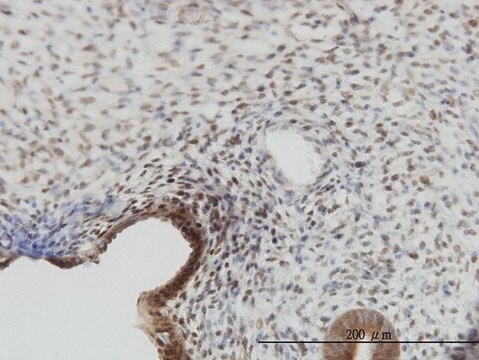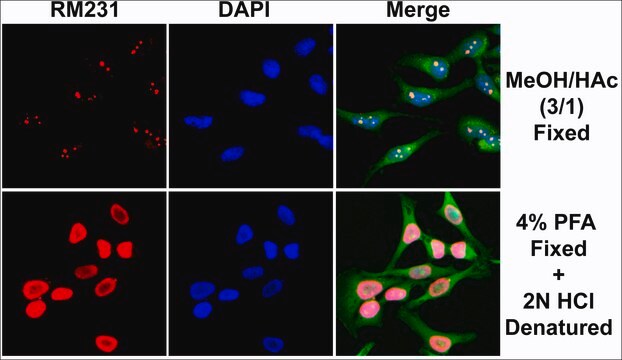MAB16200
Anti-MGMT Antibody, clone MT3.1
clone MT3.1, Chemicon®, from mouse
Synonim(y):
O-6-methylguanine-DNA Methyltransferase, Methylated-DNA--Protein-cysteine Methyltransferase
About This Item
Polecane produkty
pochodzenie biologiczne
mouse
Poziom jakości
forma przeciwciała
purified immunoglobulin
rodzaj przeciwciała
primary antibodies
klon
MT3.1, monoclonal
reaktywność gatunkowa
human
producent / nazwa handlowa
Chemicon®
metody
flow cytometry: suitable
immunocytochemistry: suitable
immunohistochemistry: suitable (paraffin)
immunoprecipitation (IP): suitable
western blot: suitable
izotyp
IgG1
numer dostępu NCBI
numer dostępu UniProt
Warunki transportu
wet ice
docelowa modyfikacja potranslacyjna
unmodified
informacje o genach
human ... MGMT(4255)
Opis ogólny
Specyficzność
Immunogen
Zastosowanie
An independent laboratory used a previous lot on flow cytometry (Gerson, 1996).
Immunoprecipitation:
A previous lot of this antibody was used on Immunoprecipitation.
Immunohistochemistry:
A previous lot of this antibody was used on paraffin embedded sections.
Optimal working dilutions must be determined by end user.
Epigenetics & Nuclear Function
Cell Cycle, DNA Replication & Repair
Jakość
Western Blot Analysis:
1:500 dilution of this antibody detected MGMT on 10 µg of Jurkat lysates.
Opis wartości docelowych
Postać fizyczna
Przechowywanie i stabilność
Komentarz do analizy
Positive Control: Tonsil tissue, HeLa cells, CEM-CCRF cells.
Negative Control: TK6 cells.
Inne uwagi
Informacje prawne
Oświadczenie o zrzeczeniu się odpowiedzialności
Nie możesz znaleźć właściwego produktu?
Wypróbuj nasz Narzędzie selektora produktów.
polecane
Kod klasy składowania
12 - Non Combustible Liquids
Klasa zagrożenia wodnego (WGK)
WGK 2
Temperatura zapłonu (°F)
Not applicable
Temperatura zapłonu (°C)
Not applicable
Certyfikaty analizy (CoA)
Poszukaj Certyfikaty analizy (CoA), wpisując numer partii/serii produktów. Numery serii i partii można znaleźć na etykiecie produktu po słowach „seria” lub „partia”.
Masz już ten produkt?
Dokumenty związane z niedawno zakupionymi produktami zostały zamieszczone w Bibliotece dokumentów.
Nasz zespół naukowców ma doświadczenie we wszystkich obszarach badań, w tym w naukach przyrodniczych, materiałoznawstwie, syntezie chemicznej, chromatografii, analityce i wielu innych dziedzinach.
Skontaktuj się z zespołem ds. pomocy technicznej

